 Check out our FAQ page to find out more about
Check out our FAQ page to find out more about
the IEEE Nanotechnology Council!
IEEE NTC Facebook websites are linked below. It can also be linked to by the facebook option at the upper right corner of the front page of the NTC website.
NTC officers, members, conference/workshop organizers are invited to join it and post relevant information.
4.1 Open website in which only authorized members are allowed to post articles:
http://www.facebook.com/groups/ieeenanotechnology/ (https://www.facebook.com/groups/550239578466583/)
4.2 Open website in which only the web host is allowed to post articles: https://www.facebook.com/IEEENanotechnologyCouncil/?ref=aymt_homepage_panel
The NTC has several Linked-in sites:
Main NTC ‘company’ page: https://www.linkedin.com/company/ieee-ntc
NTC Women in Nanotechnology (WIN) ‘company’ page: https://linkedin.com/company/ieee-nanotechnology-council-women-in-nanotechnology
NTC Young Professionals (YP):
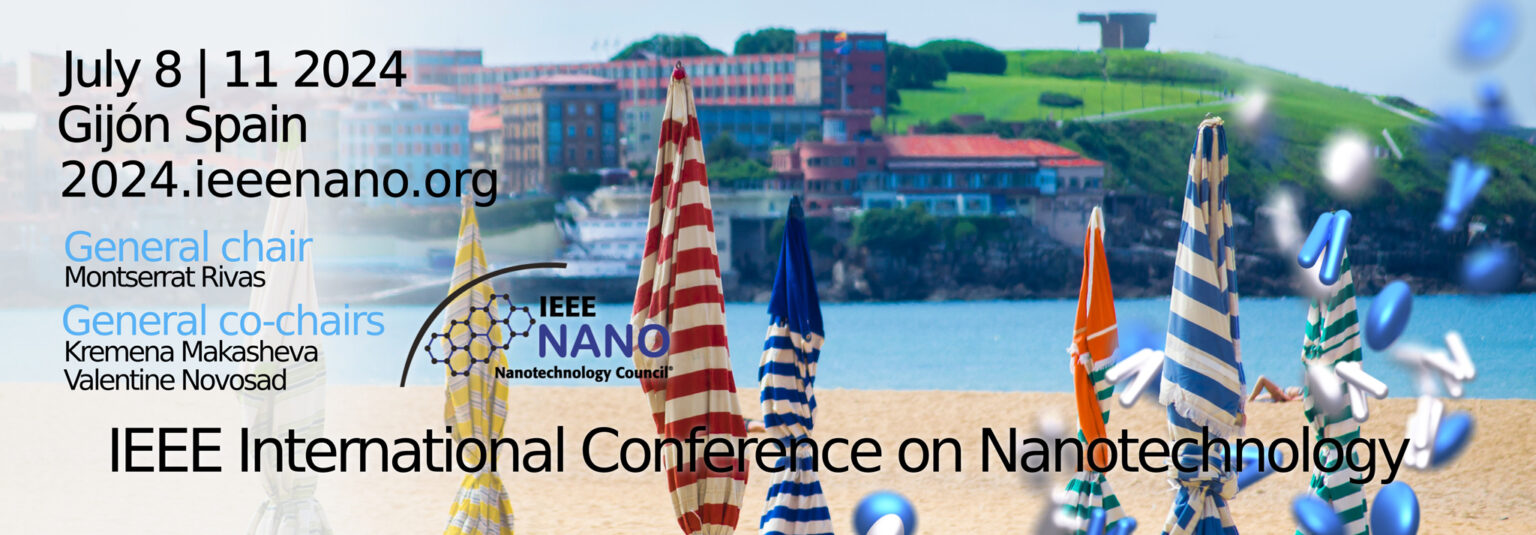
Abstract Submission – Deadline April 25
The deadline to submit your one-page abstract for the IEEE NANO 2024 is fast approaching. Authors should prepare their abstract using the word template availabe on our web page and submit it for review by April 25, 2024 via online paper submission site, selecting the “Contributed session abstract” option.
The abstract may include tables and figures (jpg or png) as far as the complete abstract adjusts to one page.
All abstracts will be peer-reviewed by the Technical Program Committee.
NANO STUDENT DESIGN COMPETITION
If you are a student attending the IEEE NANO 2024, the NANO-SDC (Student Design Competition) promises to ignite your creativity and competitive spirit like never before!
To participate in a competition, click in this link and follow the instructions. The application deadline is April 30, 2024.
Let’s explore the engaging competition topics, allowing you to choose the one that resonates with you the most:
The competitions will take place in July 2024, with winners announced during the Social Dinner on July 10, 2024.
REGISTRATION IS OPEN
Registration is open since March 1, 2024. Take advantage of the Early Registration Fee, available until June 6, 2024, to enjoy discounted rates. As an additional incentive, we encourage you to join IEEE and the IEEE Nanotechnology Council. Members enjoy reduced registration fees, providing a fantastic opportunity to maximize savings.
Registration fee includes the welcome reception, lunches at the conference site, gala dinner, coffee breaks, tutorials, conference sessions, and convention facilities.
Accompanying person fee includes welcome reception and gala dinner.
Location & Venue
Congress Centre (Palacio de Congresos), Feria de Muestras FIDMA
Paseo Dr. Fleming, 481 33201 Gijón, Asturias
Do you need a VISA? Start the procedure to get it as soon as possible!
More info here.
 Huamin Li, Region 1 YP Representative
Huamin Li, Region 1 YP Representative
Huamin Li received his BS degree from the College of Physics and Electronics, Shandong Normal University, Jinan, China, in 2007, his MS degree from the College of Engineering, Sungkyunkwan University (SKKU), Suwon, Korea, in 2010, and his PhD degree in the Department of Nano Science and Technology, SKKU, Suwon, Korea, in 2013. His PhD research focused on 2D electronics and optoelectronics. Subsequently, he worked as a postdoctoral research associate in the Department of Electrical Engineering, University of Notre Dame.
His postdoctoral work included the development of low-voltage and steep subthreshold swing (SS) components for beyond-CMOS electronic systems using low-dimensional materials. To date, his research results have been included in one book chapter (2013), published in Nature Communications (2015), Scientific Reports (2014), IEEE Transaction on Electron Devices (2009-2012) etc., presented in IEEE International Electron Devices Meeting (IEDM, 2009, 2011-2013), and filed five US and Korean patents with the collaboration of Samsung Electronics Co., Ltd. In 2012, he received Chinese Government Award for outstanding self-financed students abroad by China Scholarship Council.
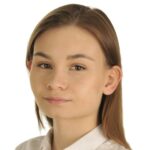 Marta Wala, Region 8 YP Representative
Marta Wala, Region 8 YP Representative
Marta Wala-Kapica earned her Bachelor’s degree in 2017 and Master’s degree in 2019, specializing in Inorganic Technology, from the Faculty of Chemistry, Silesian University of Technology, Gliwice, Poland. In 2023, she successfully defended her Ph.D. thesis in Chemical Engineering at the same institution. Her research primarily revolves around the synthesis of electrocatalytic materials through advanced electrochemical surface modification techniques, such as Electrosynthesis, Electrodeposition, and Plasma Electrolytic Oxidation.
She is particularly passionate about leveraging these methodologies for various biomedical applications and addressing environmental challenges.
From December 2023 to January 2024, Nanotechnology Distinguished Seminars (NDS) were held three times in the IEEE Nanotechnology Council (NTC) Shanghai Chapter, China. NDS Series are proposed and chaired by Prof. Weida Hu from the Shanghai Institute of Technical Physics (SITP) as the Chair of IEEE NTC Shanghai Chapter with Prof. Ivan Iorsh from lTMO University, Prof. Mario Lanza from the King Abdullah University of Science and Technology and Prof. Wenwu Pan from the University of Western Australia. There were totally 48 participants coming from China, Russia, and Saudi Arabia. NDS Series invited experts with various backgrounds to bring cutting-edge nanotechnology knowledge to our students, break down information barriers, and ultimately achieve collaborative development within the organization. A series of insightful presentations showcased groundbreaking developments in nanotechnology. Highlights of the talks included:
• Combining two-dimensional semiconductors with metasurfaces
• Hybrid 2D/CMOS microchips
• Dislocation Filtering Technology for defect reduction on heteroepitaxially-grown semiconductors
Prof. Ivan Iorsh from lTMO University briefly reviewed their recent results on the light-matter coupling in 2D semiconductors integrated with photonic nanostructures. He also discussed how the realization of strong light-matter coupling might facilitate the suppression of the inhomogeneous broadening of excitons and induce a strong nonlinear optical response. Furthermore, He showed how the excitonic properties can be controlled via strong light-matter coupling and finally discussed how one can exploit strong magnetic proximity effect in order to enable magnetooptics with 2D materials. Prof. Mario Lanza from the King Abdullah University of Science and Technology discussed how to integrate 2D materials in micro/nano-electronic devices, circuits, and microchips, giving a general overview of the global progress achieved in the field and presenting our last developments in hybrid 2D/CMOS applications. He put special emphasis on devices and circuits for memristive technologies, including data storage, computation, encryption, and communication. He also discussed the main technological challenges to face in the next years and provided some recommendations on how to solve them. Prof. Wenwu Pan from the University of Western Australia showed the use of strained CdZnTe/CdTe superlattice layers as dislocation filter layers for the heteroepitaxy of II-VI CdTe buffer layers on lattice-mismatched III-V GaAs substrates. Their experimental results reviewed here suggest that the dislocation filtering technology is a promising approach for achieving high-quality heteroepitaxy of semiconductors on large-area lattice-mismatched substrates, which is crucial for the fabrication of high-performance optoelectronic devices, especially monolithically integrated devices.
The IEEE NTC Shanghai Chapter Nanotechnology Distinguished Seminar Series was a great success, making all participants rejoice in their contribution to the synergistic development within IEEE NTC Shanghai Chapter and future endeavors in the field of nanotechnology.
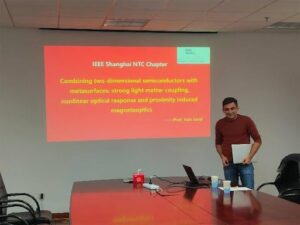
Prof. Ivan Iorsh from lTMO University
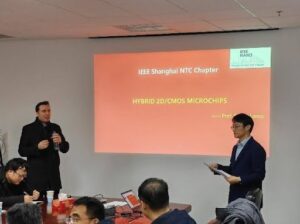
Prof. Mario Lanza from the King Abdullah University of Science and Technology
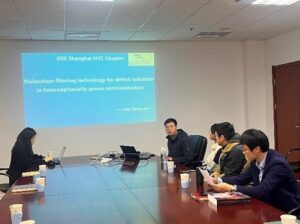
Prof. Wenwu Pan from the University of Western Australia

Short paper submission (1-3 pages) extended until 30 April 2024
The 7th Int. Conference on Manipulation, Automation and Robotics at Small Scales (MARSS) will be held on 01-05 July 2024, in Delft, Netherlands https://marss-conference.org. General Chairs: Massimo Mastrangeli (NL) and Pierre Lambert (BE). MARSS is the flagship forum for cross-disciplinary R&D communities related to manipulation, automation, measurement and characterization at micro/nano scales as well as all kinds of small size robots (nm – cm) and their applications. The conference is technically supported by IEEE-NTC and IEEE-RAS.
MARSS 2024 will feature 14 plenary talks (by invitation only) and up to 36 technical sessions (oral presentations). We encourage you to attend and contribute to the conference.

Regular Paper Submission Final Deadline March 21, 2024
Final deadline extension to submit your contribution describing the latest scientific and technological research and activities in the fields of nanoscience and nanotechnology. Authors should prepare a paper (4-6 pages) using the template in the IEEE style and submit it for review via the online paper submission site until March 21, 2024.
All papers will be peer-reviewed by the Technical Program Committee. Accepted papers will be considered for IEEE NANO 2024 Best Paper Award, and the conference content will be submitted for inclusion into IEEE Xplore.
There will be no more extensions for paper submissions, do not miss the opportunity!
IEEE NANO 2024 also accepts the option of only abstracts, in which authors should prepare a “One-page Abstract“ using the provided template and submit it for review by April 10, 2024 via the online paper submission site, selecting the “Contributed session abstract” option. The abstract may include tables and figures as far as the complete abstract adjusts to one page.
All abstracts will be peer-reviewed by the Technical Program Committee but they will NOT be considered for IEEE NANO 2024 Best Paper Award nor be submitted for inclusion into IEEE Xplore or other A&I databases.
To be considered for inclusion into IEEE Xplore, we encourage authors to submit their work as full papers (4 to 6 pages) by March 21, 2024.
STUDENT GRANTS
We are thrilled to announce the availability of grants for students to attend the IEEE NANO 2024 conference! These grants are designed to support students in their academic and professional development by providing assistance for travel expenses, registration fees, and more.
Deadline for application April 10, 2024.
More information here.
Find captivating and inspiring interviews, insights on the special sessions and more!
Location & Venue
Congress Centre (Palacio de Congresos), Feria de Muestras FIDMA
Paseo Dr. Fleming, 481 33201 Gijón, Asturias
Do you need a VISA? Start the procedure to get it as soon as possible!
More info here.
✈️

CALL FOR PAPERS:
IEEE Open Journal of Nanotechnology (OJ-NANO) Special Section on
IEEE-NSENS 2024: Nano Materials and Devices for Sensors, AI, and Robotics
IEEE Open Journal of Nanotechnology (OJ-NANO), a gold fully open access journal launched in 2020 by IEEE Nanotechnology Council, publishes research advancing the theory, design and development of nanotechnology and its scientific, engineering and industrial applications. The journal has an independent editorial board, established peer-review process, is targeting a ten-week rapid publishing schedule and is fully compliant with funder mandates, including Plan S. Your work will be exposed to 5 million unique monthly users of the IEEE Xplore® Digital Library. IEEE OJ-NANO received its first Journal Impact of 1.7 and is now indexed in the Science Citation Index Expanded (SCIE)TM by Clarivate Analytics as well as in Scopus®! This development indicates increased visibility and profile for both the journal and its published articles, demonstrating IEEE OJ-NANO is a reliable and high-quality source of information in the field of nanotechnology.
IEEE OJ-NANO will devote a special section on “IEEE-NSENS 2024: Nano Materials and Devices for Sensors, AI, and Robotics” to a collection of papers highlighting research and technology development in the field of nanotechnology, particular of materials and devices for the applications in sensors, AI and robotics. IEEE Nanotechnology Council sponsors the 3rd IEEE International Conference on Micro/Nano Sensors for AI, Healthcare, and Robotics (IEEE-NSENS 2024) held on 2 – 3 March 2024 to foster interaction between engineers, scientists and industry in these emerging areas.
IEEE OJ-NANO will devote a special section on “IEEE-NSENS 2024: Nano Materials and Devices for Sensors, AI, and Robotics” to a collection of papers highlighting research and technology development in the field of nanotechnology, particular of materials and devices for the applications in sensors, AI and robotics. IEEE Nanotechnology Council sponsors the 3rd IEEE International Conference on Micro/Nano Sensors for AI, Healthcare, and Robotics (IEEE-NSENS 2024) held on 2 – 3 March 2024 to foster interaction between engineers, scientists and industry in these emerging areas.
NOTE: IEEE OJ-NANO will waive 25% of the APC (Article Publishing Charge) for papers accepted for publication in the NANOMED 2023 special issue!
Areas of interest include but are not limited to:
Submissions are solicited from the IEEE-NSENS 2024 conference participants and other researchers in the field for a review paper or a research paper for this themed issue. Manuscripts will be subject to the OJ-NANO normal peer review procedures. If your manuscript is based on the IEEE-NANOMED 2023 paper, the manuscript must build significantly on it, with at least 30% of the submitted results representing new research. Additional text, figures and references are obligatory, and no passages of texts or figures should be identical to your conference paper as this could breach copyright. A nearly exact duplicate of the conference paper will be rejected.
Manuscripts for IEEE OJ-NANO must be prepared using the “IEEE manuscript template” and “Information for Authors” at https://oj-nano.ieeenano.org/submitting-an-article/; and be submitted on-line via the IEEE Manuscript Central found at https://mc.manuscriptcentral.com/oj-nano. On submission to IEEE OJ-NANO, authors should select the “Special Issue: IEEE-NANOMED 2023” as a manuscript type instead of “Regular Paper.” Also, indicate in the cover letter that you wish the paper to be considered for the Special Issue “Nano/Molecular Medicine and Engineering”.
Deadlines:
| Manuscript Submission | April 30, 2024 |
| Anticipated Publication | November 31, 2024 |
Guest Editors:
Yunlong Zi, Ph.D.
Associate Professor, Sustainable Energy and Mechanical Engineering
Hong Kong University of Science and Technology – Guangzhou, China
Email: ylzi@hkust-gz.edu.cn
Kewang Nan, Ph.D.
Professor, Micro Nano Materials and Biomedical Engineering
Zhejiang University, China
Email: knan@zju.edu.cn

CALL for PAPERS
IEEE Open Journal of Nanotechnology (OJ-NANO)
Special Section on
Future Nanocomputing: Trends and Challenges
Guest editors
Scope and purpose
The concept of nanocomputing refers to the ability of computers to represent and manipulate data in the nanometer scale. In practice, circuits and computer systems are constructed using transistors with channels significantly shorter than 100 nanometers. Consequently, the current objective is to develop computers that utilize devices no larger than 10 nanometers. To achieve this, nanocomputing must undertake a comprehensive examination of nanotechnology in the field of computing. This aspect comprises interdisciplinary investigations that traverse various fields through the utilization of nanoscale technologies and the exploration of innovative processing paradigms. At the lowest device level, it encompasses not only CMOS but also numerous emerging technologies (including spintronics, molecular, superconducting, and DNA). However, it also incorporates circuit design considerations. It is unsurprising that this research necessitates a forum (and related community) that transcends disciplines to deliberate on innovative post-CMOS and advanced technological avenues for nanocomputing. To address the primary challenges encountered by integrated electronics in the twenty-first century, inventive future resolutions are necessary.
This special issue will showcase the most recent advancements in the multidisciplinary domain of nanocomputing technologies. It will specifically highlight the most recent developments in the corresponding technologies that are applicable for the modeling, design, fabrication and testing of unconventional nanocomputing systems such as biological, quantum, spintronic, and neuromorphic systems. Notably, efficient fabrication and implementation frameworks (from circuits to modules) and a physical foundation (i.e., devices) are necessary for these technological paradigms to function so that computations at the nanoscale can be executed efficiently in such unconventional venues. Therefore, the scientific forum that is specifically focused on technologies for nanocomputing will feature contributions from eminent international theorists and experimentalists. This will offer a one-of-a-kind opportunity to discuss and exchange ideas, share knowledge, identify unresolved matters, and suggest avenues for future research in a vast array of disciplines, including material science, device physics, nonlinear circuit and system theory, memory, and computing applications (including computer architecture).
In conclusion, this special issue provides a novel perspective on the immense possibilities that nanocomputing technologies illuminate. They originate from diverse perspectives, including material engineering, novel modeling elements, different types of nano-computing, emerging signal processing paradigms, and even surpass von Neumann computing through the implementation of unconventional, spintronic, quantum, and neuromorphic computing.
Submission Procedure
Potential authors are encouraged to adhere to the guidelines outlined on the OJ-NANO website (https://mc.manuscriptcentral.com/oj-nano) when submitting their papers. The manuscripts that are being submitted should not have been published previously, nor should they be in the process of being reviewed for publication elsewhere at this time.
Topics of interest
Topics of interest to this special issue include, but are not limited to, contributions concerning almost every technology targeting for future nanocomputing. More specifically, these may include, but not limited to the following:
Important dates
| Manuscript submissions due | 2024-05-01 |
| First round of reviews completed | 2024-07-01 |
| Revised manuscripts due | 2024-08-15 |
| Second round of reviews completed | 2024-09-15 |
| Final manuscripts due | 2024-10-01 |
| Accepted manuscripts final submission | 2024-10-31 |
| Target publication date | 2024-11-30 |
Request for information
Fabrizio Lombardi (lombardi@ece.neu.edu) and all the rest of Guest Editors (in alphabetical order)
Giovanni Finnochio (giovanni.finocchio@unime.it)
Georgios Ch. Sirakoulis (gsirak@ee.duth.gr)
Initial Proposal Deadline: 30 April 2024
The IEEE Nanotechnology Materials and Devices Conference (IEEE-NMDC) aims to develop critical assessment of existing work and future directions in nanotechnology research from every sector in the nanotechnology research field, with a special focus on materials and devices. NMDC 2024 will be held in Salt Lake City, Utah, USA. Past locations of the NMDC have been in Asia (Korea, Japan, Taiwan, Singapore), USA (California, Michigan, Hawaii, Alaska, Portland), Canada (Vancouver, BC) and Europe (Italy, France, Sweden). NMDC typically runs between mid-September and mid-October, with the later dates preferred since IEEE NANO runs in the first half of July.
We are now seeking proposals for IEEE-NMDC 2026 which is expected to run in IEEE Region 8 (Europe, Africa/ Middle East). For conference history, visit https://ieeenano.org/nmdc.
Early indication of an intention to submit a proposal is strongly recommended. Candidates for NMDC 2026 will be expected to present a 5-10 minute “Proposal in Preparation” based on the initial proposal at the NTC ExCom and AdCom meetings in July 2024 held at IEEE-NANO 2024 in Gijon, Spain. Final proposals are due in October for presentation at the Fall NTC ExCom meeting.
PROPOSAL FORMAT:
Initial proposals should be prepared in PowerPoint presentation format. An NTC Conference Proposal Guidelines and a PPT template are available upon request. Proposals should cover:
Formal proposals must be e-mailed prior to the appropriate deadline to: NTC Vice-President for Conferences Kremena Makasheva (kremena.makasheva@laplace.univ-tlse.fr) with copies to Ed Perkins, NTC Secretary (e.perkins@ieee.org).
Contact Kremena Makasheva, (kremena.makasheva@laplace.univ-tlse.fr) with any questions.
IEEE Journal on Exploratory Solid-State Computational Devices and Circuits
Special Topic on 3D Logic and Memory for Energy Efficient Computing
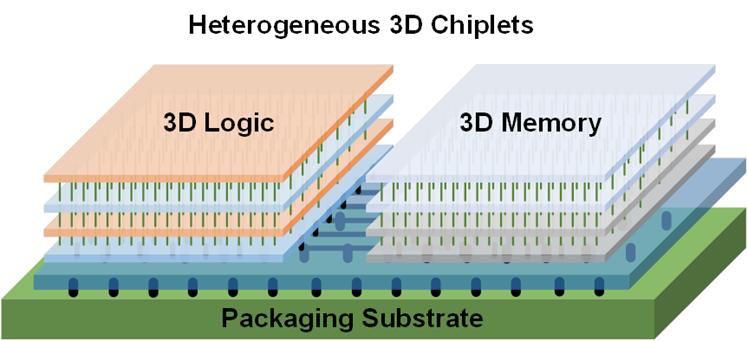
CALL FOR PAPERS
Guest Editors
Yu Cao, University of Minnesota, yucao@umn.edu
Jeff Zhang, Arizona State University, jeffzhang@asu.edu
Editor-in-Chief
Azad Naeemi, Georgia Institute of Technology, azad@gatech.edu
Aims and Scope
Monolithic microelectronic design is facing tremendous challenges in the growing need of computation memory bandwidth and latency, and the energy efficiency of computation which is limiting its performance and cost. Although recent advances (e.g., domain-specific acceleration, near-memory and in-memory computing techniques) try to address these issues, the scaling trend of monolithic design still lags behind the ever-increasing demand of AI algorithms, high-performance computing, high-definition sensing and other data-intensive applications. In this context, technological innovations, in particular 3D integration through packaging and monolithic methods, are critical to enabling heterogeneous integration (HI) and bringing significant performance, energy and cost benefits beyond traditional chip design. 3D logic and memory design allow heterogeneous functional macros (i.e. chiplets) to be flexibly produced and connected with higher interconnection density, length reduction and area utilization, opening new opportunities across the microelectronic design stack.
The paradigm shift to heterogeneous integration and monolithic 3D methods requires a tight collaboration between packaging and chiplet designs spanning the entire design cycle, including devices, circuits, architectures, and design automation tools. Logic and memory will be partitioned into various 3D modules. The designers need to customize each module and define the interface, and assess system-level tradeoffs in performance, data movement, and energy efficiency. Design and synthesis tools have to be aware of 3D integration and planning knowledge (e.g., power delivery, heat dissipation and reliability) to enable the packaging and chiplet co-design. Furthermore, early predictive modeling and analysis of the 3D HI circuits and systems are essential to minimize the iteration cost between 3D architecture definition and design implementation.
This special issue of the IEEE Journal on Exploratory Computational Devices and Circuits (JXCDC) aims to call for the recent research advances in the area of 3D logic and memory design spanning from monolithic 3D and advanced packaging technology to circuits and architectures. Papers on co-design and optimization across multiple domains are encouraged.
Topics of Interests
Prospective authors are invited to submit original works and/or extended works based on conference presentations on various aspects of 3D logic and memory design for energy efficient computing. Topics of special interest include but are not limited to:
Information on submission guidelines can be found at the JxCDC page on the SSCS website.
Paper submissions must be done through the IEEE Author Portal website: https://ieee.atyponrex.com/journal/JXCDC
Important Dates
Open for Submission: February 15th, 2024
Submission Deadline: May 31st, 2024
First Notification: June 30th, 2024
Revision Submission: July 15th, 2024
Final Decision: July 31st, 2024
Publication Online: August 15th, 2024

Website: https://marss-conference.org
Download Call for Papers (PDF)
MARSS, the annual International Conference on Manipulation, Automation and Robotics at Small Scales, is a non-profit conference run by the microrobotic community and technically supported by IEEE-RAS and IEEE-NTC. MARSS2024 will be held in-person on July 01-05, 2024, in Delft, Netherlands. The conference is the flagship forum to discuss cross-disciplinary activities on 1) manipulation, automation, measurement, and characterization at micro/nano scales, and 2) all kinds of small-scale robots (nm – cm) and their applications.
Program: MARSS2024 offers 13-14 plenary talks and up to 36 technical sessions. The high-profile plenary talks (40 min) will be given by distinguished experts. All accepted papers (full and short) will be presented in the technical sessions (20 min, oral presentation) Accepted full papers will be submitted for inclusion into IEEE. Xplore® subject to meeting IEEE Xplore®’s scope and quality requirements.
Awards: All presented full papers will contest for various . TheBest Paper Awards Awards include a certificate and a cash prize. Additionally, MARSS2024 will present Big-on-Small Award, along with a commemorative plaque and a cash prize. This Award is intended to promote upcoming talents in MARSS-related fields of research with excellent performance and international visibility.
Venue: MARSS2024 will be held on the main campus of Delft University of Technology (TU Delft). Delft enjoys a worldwide reputation due to its connection with Johannes Vermeer, Delft Blue earthenware and the Royal House. You will relive its glorious past as you wander along canals, churches and courtyards. This university town with medieval architecture also features canal tours, museums, and markets.
| Important Dates: | |
| Full paper submission (5-6 pages): | March 31, 2024 (no extension possible!) |
| Short paper submission (1-3 pages): | March 31, 2024 (may be extended until April 30, if slots are available |
| Notification of paper status: | Full paper: within 2 weeks after the submission |
| Short paper: 2-3 days after the submission | |
| Submission of camera-ready full papers: | April 30, 2024 |
| Registration for speakers of full papers: | April 30, 2024 |
| Early Bird registration (discounted): | April 30, 2024 |
| Special session proposals: | March 31, 2024 (preliminary proposal, OPTIONAL) |
| April 30, 2024 (final list of Session speakers) | |